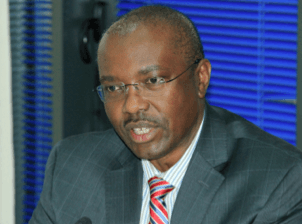PPP Law will address inefficiencies in sole-sourced procurements – World Bank

The proposed Public-Private-Partnerships (PPP) Bill, when passed, is expected to provide clear guidelines on procurements and other processes for PPP in Ghana and thus help to curb excesses caused by sole-sourced procurement.
Mr Henry Kerali, the World Bank Country Director, said the passage of the Bill, which was part of recommendations in a World Bank Policy Note on Promoting PPPs, presented to the Government, would clarify the procedures and processes for handling PPPs.
Mr Kerali said this at a press briefing organised by the Bank to discuss outcomes from discussions at the 2017 World Bank/IMF Spring Meetings in Washington DC.
Responding to a question on how to ensure efficiency in agreements with potential investors in Ghana arising from the Bank’s call on Ghana to attract more investment in light of excesses made in the signing of PPPs, Mr Kerali said public investments must be procured through competitive and transparent procurement processes that would result in the best value for the country.
He said Ghana’s previous government had signed over 40 Power Purchase Agreements (PPAs) with Independent Power Producers, which had resulted in excess power supply in the country.
The tariff rates for most of these agreements were above the regional tariff rate, which would pose a challenge to Ghana selling the excess power to other countries in the sub-region, he said.
Mr Kerali said a major challenge in the signing of these PPAs was that they were not procured through competitive procurement processes; but rather through sole sourced arrangement which made it difficult to assess if they offered the best value for Ghana.
He said Ghana’s tariff levels were higher than in countries like Cote d’Ivoire, where the tariff, from competitive sourcing, was between nine to 11 cents per megawatt.
“This is probably an indicator of the inefficiency of doing sole-sourced projects or projects where the promoter approaches government with an idea and a price that has not been tested,” he said.
The World Bank, at the spring meeting, has recommended that Ghana boost its efforts to attract more investors into the country.
In order to avoid the risks associated with sole-sourced procurement as seen in the PPAs, Mr Kerali said: “Our recommendation will always be to have a competitive procurement process for public investment”.
He said while it was possible to assess the value in sole-sourced projects, it involved a lengthy process.
While economic growth on the African Continent is slowly rebounding and growth per Gross Domestic Product was projected to grow at 2.6 per cent in 2017, Ghana was performing much better with growth projected between six and seven per cent in 2017 and higher in 2018.
The key challenge, identified at the spring meetings, was how countries could attract private investment considering that there was about 10 trillion dollars of underperforming investments around the world such as pension funds and sovereign wealth funds.
To do this, Mr Kerali said Africa would need to make the necessary structural and business environment reforms as well as address protectionist tendencies and efficiency issues to be more competitive.
In spite of the challenges with Ghana’s energy sector investments and some challenges with some projects the Bank’s portfolio in Ghana was one of the best-performing in the region.
“We will be working with the new government to address these issues and further extend our support,” he said.
Source: GNA
